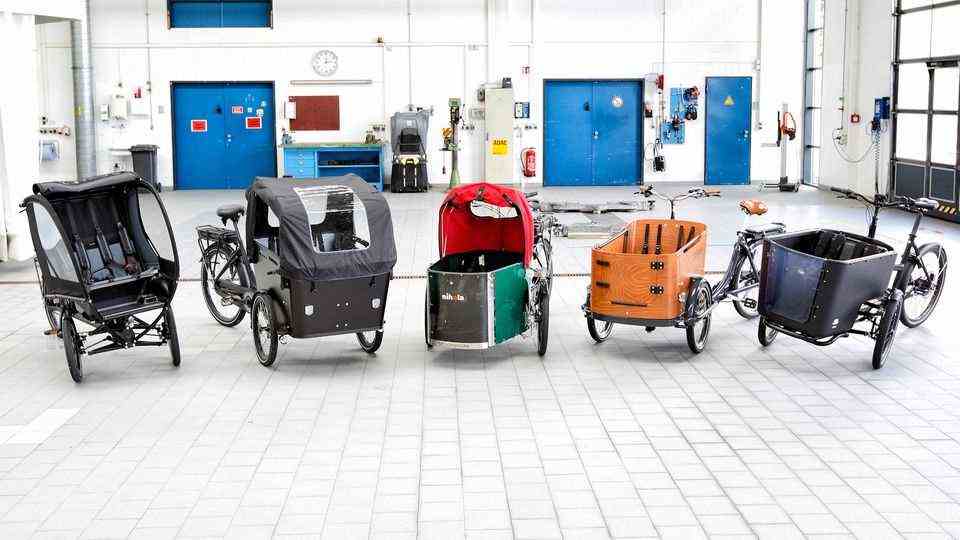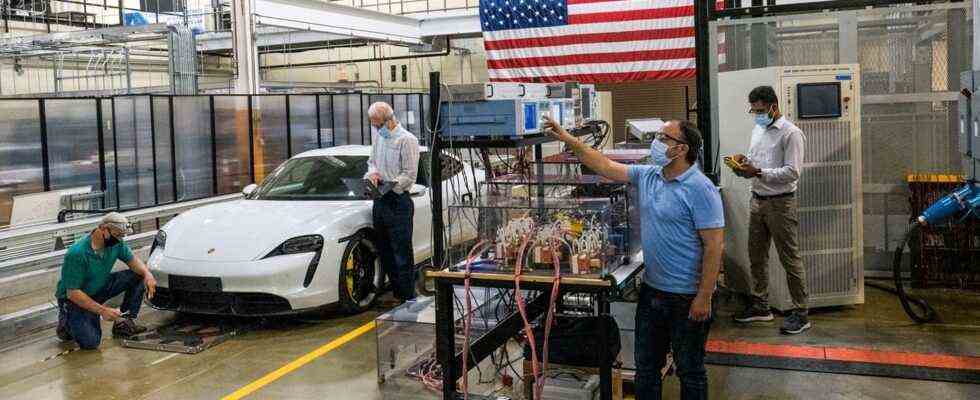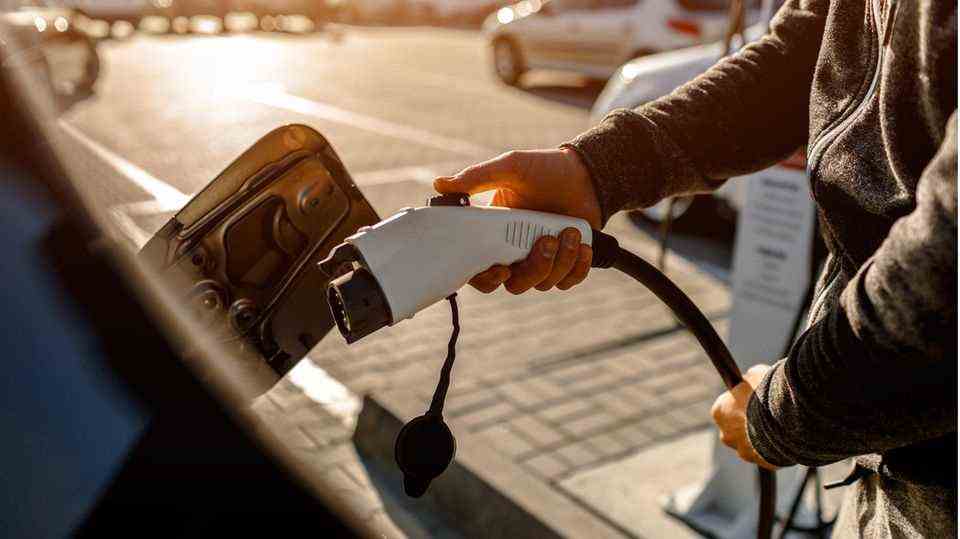Electromobility
VW achieves breakthrough in inductive charging of electric cars
The inductive charging system from Volkswagen achieved an output of up to 120 kilowatts in the first tests
© Volkswagen Group of America
The German car maker Volkswagen is researching a revolutionary charging technology for electric cars in the USA. With inductive charging, cables and plugs should be a thing of the past. The engineers have now achieved their first breakthrough on their mission.
The American Volkswagen subsidiary is expanding its innovation laboratory in the US state of Tennessee. The so-called “Innovation Hub Knoxville” pursues one goal in particular: The end of the charging cable in electromobility.
For this reason, the Volkswagen Group of America is also expanding its collaboration with the Oak Ridge National Laboratory (ORNL). The laboratory is the largest science and energy research center in the US Department of Energy. In Knoxville, the two parties are working on, among other things, recyclable and plant-based functional materials for the electric car industry.
However, the focus of the collaboration is on high-performance charging concepts for electric cars. Volkswagen relies on inductive charging. A technology that many consumers are likely to be familiar with from their cell phones and electric toothbrushes. Just like these everyday objects, Volkswagen’s electric cars and hybrids should in the future get by without cables and guarantee high performance, high efficiency and as little interference as possible.
Inductive charging should reach up to 300 kilowatts
So far, the high charging losses in particular have been a problem for car manufacturers. However, Volkswagen now seems to have made great strides in this area. A new prototype system has been tested on the Porsche Taycan over the past few months. The result: up to 98 percent of the energy used could reach the vehicle battery.
The new prototype could represent an important step in the development of inductive charging systems. The Institute for Automation and Communication in Magdeburg already established in May of this year that wireless charging and feeding back battery power from electric cars into the power grid are technically possible without any problems. At that time, however, the researchers only analyzed charging systems with up to 11 kilowatts. Volkswagen and ORNL have therefore succeeded in increasing the charging power compared to their previous models from 6.6 to up to 120 kilowatts.
According to Volkswagen, the company’s goal is to achieve an output of up to 300 kilowatts. Such an output would be sufficient to charge the Porsche Taycan to 80 percent in around ten minutes. However, it could still be some time before the wireless battery system can be seen in the Volkswagen Group’s electric vehicles.

See in the video: The ADAC took a close look at electric cargo bikes for the first time. Five models were examined in the categories of driving, drive system and engine, handling and comfort, safety and workmanship, and pollutants.
Source: Efahrer.com, Electrive, Volkswagen


